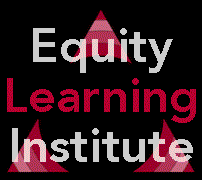
|
|
|
|
an EdChange project by Paul C. Gorski
|




|
Diversity Is About Change and Leadership Jose Soto Vice-President for Affirmative Action/Diversity, Southeast Community College System Lincoln, Nebraska Social forecasters predict that the future -- the year 2000 and beyond -- will usher in an era of ethnic, racial, and cultural "minorities" as the statistical majority in the United States. As a result of this inevitable demographic phenomenon, "diversity" and "cultural competence" will continue as the by-words and challenges facing our society and social institutions into the new millenium. What is needed to prepare our institutions and us to work within this environment of change? My answer focuses on leadership and a personal commitment to moving the diversity agenda forward. The challenge for societal institutions will be immense Diversity will continue to place increasing demands on and present formidable challenges for businesses, educational institutions, health care systems, the criminal justice system, and other governmental entities, and the individuals who work within these systems. The demands and challenges center on CHANGE. The reality is that the status quo is no longer an option. In this environment of societal change and transition it is critical that individuals develop and maintain
Currently, and more so in the future, professionals must be culturally competent that is, they must possess a wide repertoire of skills and a broad cultural knowledge base to interpret and understand the world views, communication styles, and unique ways of "thinking, being and doing" of others. Further, professionals will be required to use this new knowledge, skills, and abilities to accurately assess needs and select the best strategies and techniques to manage the dynamics of difference within their changing organizations. Cultural Competence: A Measure of Our Understanding of and Readiness to Manage Diversity As we move toward a more culturally diverse society and workforce, we must begin to assess the cultural strengths of our institutions and organizations, and the people who manage those entities. There are literally hundreds of questions we should be asking ourselves, on an ongoing basis. Our individual and collective answers to these questions will give us insights as to our own "cultural baggage" and will also serve as an indication of how prepared we are to:
A recent issue of the journal "Black Issues in Higher Education," (Vol. 15, No. 20, 11/26/98), emphasized the importance of leadership in establishing and sustaining a commitment to diversity. The following questions, adapted from the journal's "Checklist for Assessing Your President's Diversity Commitment," can help you assess your level of leadership and personal commitment to positioning your institution to accommodate the emerging diversity.
Accommodation and adaptation within organizations to the expected changes in the diversity equation will be successful to the extent institutional decision-makers assume personal and professional responsibility for facilitating change and exerting leadership in their spheres of authority and influence. Your answers to the questions posed above will assist you in assessing your personal commitment to advancing the diversity agenda, and your willingness to provide the leadership necessary to successfully accommodate and be a part of the emerging diversity.
|